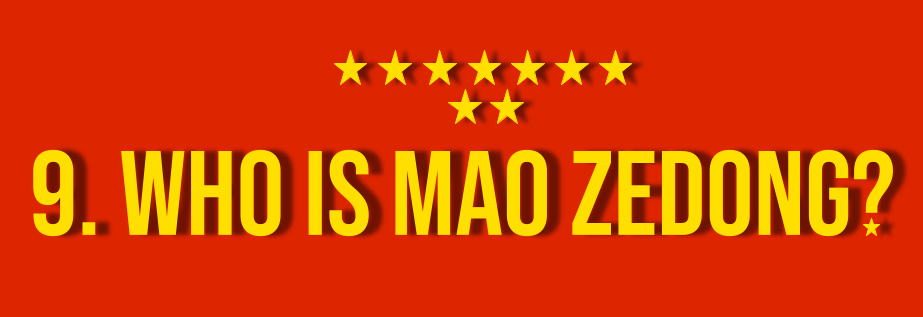9.Who is "Mao Zedong"?
Who is Chairman Mao? Why is he considered the godfather of the CCP?
Mao Zedong, one of the most influential and controversial figures in modern Chinese history, played a pivotal role in shaping the course of the Chinese Communist Party (CCP) and the People's Republic of China. This essay aims to provide a comprehensive overview of Mao Zedong's life, his contributions to the Chinese revolution, his leadership during the early years of the People's Republic of China, and the lasting impact of his policies on China's political and social landscape.
Early Life and Rise to Power
Mao Zedong was born in 1893 in Hunan province, China, and initially trained as a teacher before becoming involved in revolutionary activities. He emerged as a key figure within the CCP during the 1920s, advocating for a peasant-based revolution and espousing Marxist-Leninist ideology. Mao's leadership during the Long March, a pivotal event in the CCP's history, solidified his position as the party's paramount leader, and he eventually became the Chairman of the CCP in 1943.
Founding of the People's Republic of China and Early Policies
Following the establishment of the People's Republic of China in 1949, Mao Zedong assumed the role of Chairman of the Central People's Government. His early policies, including the implementation of land reforms and the initiation of the First Five-Year Plan, were aimed at restructuring China's socio-economic landscape and redistributing land and resources to the rural population. Mao's vision of a socialist society, characterized by collective farming and centralized economic planning, shaped the foundation of the new Chinese state.
Great Leap Forward and Cultural Revolution
Mao Zedong's leadership during the Great Leap Forward (1958-1962) and the Cultural Revolution (1966-1976) marked a tumultuous period in Chinese history, characterized by ambitious socio-economic campaigns and political purges. The Great Leap Forward, intended to rapidly industrialize and modernize China, resulted in widespread famine and economic turmoil, leading to the deaths of millions of people. Similarly, the Cultural Revolution, aimed at purging "counter-revolutionary" elements and promoting Maoist ideology, led to social upheaval, political persecution, and the disruption of education and cultural institutions.
Legacy and Contemporary Assessment
Mao Zedong's legacy remains deeply divisive, with proponents lauding his role in unifying China and modernizing the country, while critics condemn his authoritarian rule, political purges, and disastrous policies that led to widespread suffering and loss of life. The ideological legacy of Maoism continues to shape China's political discourse and governance, with the CCP balancing Maoist principles with market-oriented reforms. While Mao Zedong's contributions to China's revolution and early nation-building are acknowledged, the human cost of his policies and the turbulent chapters of the Great Leap Forward and Cultural Revolution serve as a stark reminder of the complexities of his leadership and the enduring impact of his legacy on contemporary China.
Final thoughts
Mao Zedong's indelible mark on modern Chinese history is characterized by his role as a revolutionary leader, the founding father of the People's Republic of China, and the architect of China's socialist transformation. His leadership during the early years of the People's Republic of China, coupled with the tumultuous periods of the Great Leap Forward and the Cultural Revolution, continue to shape the socio-political landscape of contemporary China. Understanding the multifaceted dimensions of Mao Zedong's leadership is crucial for comprehending the complexities of China's revolutionary history and its enduring legacy in the 21st century.



